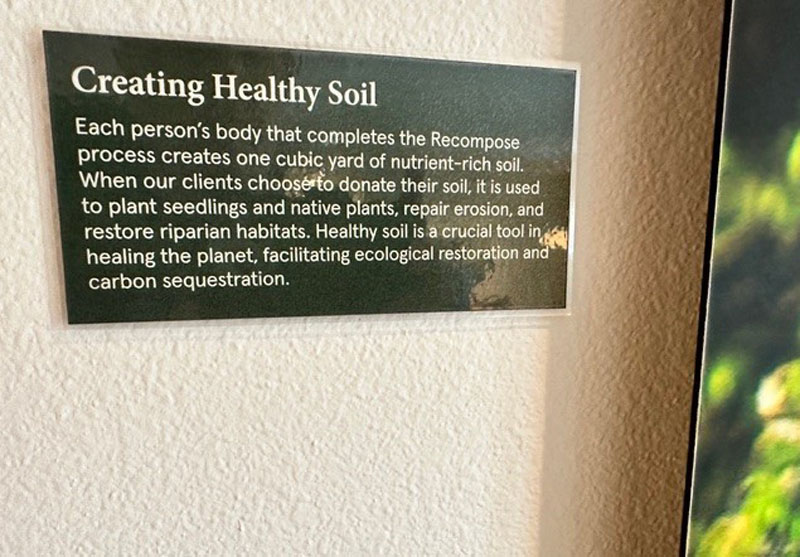Reflections on Deathcare Superconference 2024

Reflections on Deathcare Superconference 2024
Peter Toppings, Executive Director, Memorial Society of BC
I had the opportunity to attend the Deathcare Superconference in Seattle this past September. It was organized by a number of partners, including the Funeral Consumers Alliance, the National End-of-Life Doula Alliance, and the People’s Memorial Association, Washington’s equivalent to the Memorial Society of BC.
I was intrigued by the term ‘deathcare’ to denote the planning and provision of services post-death. It is not a term that is commonly used here in BC. Yet it resonates with me as it implies taking care of the dead, which is very much what we do at the Memorial Society of BC.
The Saturday, structured in four sections, offered a full day of presentations and panel discussions on a wide range of topics related to end of life and deathcare.
Legal Issues
The morning session on legal issues underscored some significant differences between Canada and the U.S. For example, one of the legal goals in the US is to require funeral providers to make their price lists for services public. This transparency is in the interest of protecting consumers. Fortunately in BC, the Cremation, Interment and Funeral Services Act already makes this a requirement.
Their Medical Aid in Dying program is very restrictive and only available in eleven states. In their version, an individual requests from their doctor a prescription for medication they can decide to self-ingest. This is a far cry from the level of support provided through MAID in Canada.
A third issue would have interesting consequences for both countries. Currently, a funeral director must be trained in embalming to be certified. With a growing shortage of funeral directors in the sector and a steady decline in traditional burials that include embalming, the call is to remove embalming as a requirement for certification in the hopes it would attract more people to the industry. This seems like a fair assumption.
Affordability
The second session explored programs that support affordable deathcare for ‘impoverished’ individuals. The presentation that most stood out was The Life Forest. Based in New Hampshire, it is a not-for-profit conservation cemetery adhering to eco-friendly practices. As part of their commitment, they will donate a burial plot for individuals and their families with limited financial means.
It was interesting that in discussion of affordability, there was little discussion to the role of memorial societies in access and affordability, especially given that one of the organizing partners was the Funeral Consumers Alliance, which represents memorial societies across the US.
Diversity, Equity and Inclusion
Panelists discussed how issues of diversity, equity and inclusion issues impact how people access current deathcare systems. We heard from compelling speakers who highlighted the barriers and challenges experienced by African American (and other people of colour), Indigenous and LGBTQ communities. Viennia, an indigenous woman, shared an inspiring story of her determination to provide her father with a home funeral according to their cultural traditions, and the many hurdles she had to overcome to do so.
Models of Care
The final session explored innovative models of care. I was particularly struck by two presentations.
The Humane Prison Hospice Program is developing a humanitarian and cost-effective program to ensure that the ageing and dying receive compassionate care in prison. For example, in San Quientin, they have been training groups of incarcerated men known as Brothers’ Keepers to provide compassionate end-of-life care and grief support. Mourning Dove Medical is a private mobile medical practice, serving home-bound patients at late stages of life. It is run Dr. Guidry, a hospice and palliative care physician and end-of-life doula.
Tour of Recompose
On Sunday, the tour of Recompose was a highlight of the conference. Recompose is a Seattle funeral home specializing in natural organic reduction, more commonly known as human composting. Developed by Katrina Spade, the process is an environmentally friendly green technology. It is a fascinating process in which a body is enclosed in a container, composted over several weeks with woods chips, straw and alfalfa. The end result is soil which is returned to the family.
While human composting is legal in twelve US states, it is one area in which the US is ahead of Canada as it not yet legal anywhere in this country. We have had a couple of instances at the Memorial Society in which the body of a member was transported to Washington for composting – so that is one option to consider. For more information on NOR in BC, check here.
